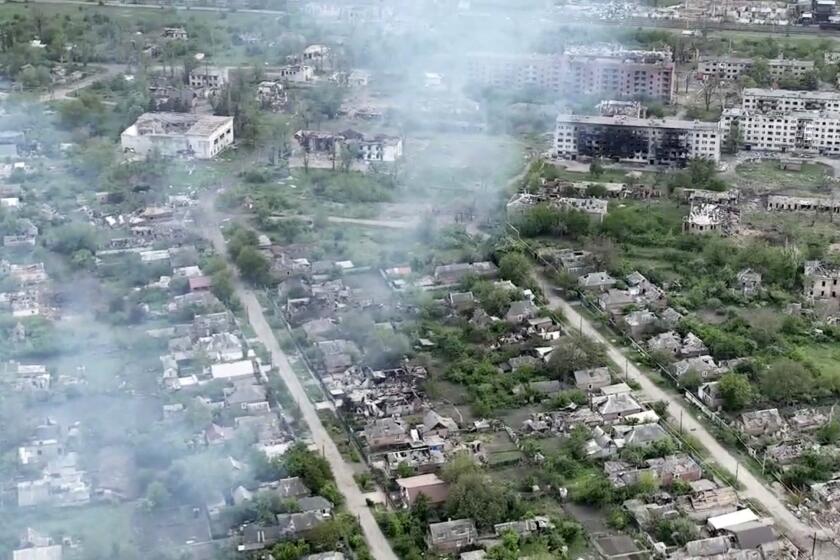Global protests focus on Myanmar
bangkok, thailand -- Thousands of demonstrators in cities across Europe and Asia joined in protests against the military regime in Myanmar after it acknowledged detaining hundreds of Buddhist monks who led huge protests.
While sympathizers from Taipei, Taiwan, to London chanted and waved placards, activists in Myanmar slipped quietly underground to hold candlelight prayer vigils for the protesters killed or arrested in the ruling junta’s violent crackdown.
Hoping to send Myanmar’s ruling generals a message that “the world is still watching,” Amnesty International organized marches in more than two dozen Asian, European and North American cities.
But some observers said these would probably have minimal effect on an inward-looking military elite that has largely ignored world opinion and pressure during its rule.
No public demonstrations were held in Myanmar’s largest city of Yangon, also known as Rangoon, where bans on gatherings have been enforced by gun-toting soldiers. But some in the city and elsewhere in the country prayed in their homes at the suggestion of a Buddhist monk interviewed by Radio Free Asia’s Burmese-language service.
The military has acknowledged detaining hundreds of Buddhist monks who spearheaded the mass demonstrations.
The party of detained pro-democracy leader Aung San Suu Kyi said Saturday that 210 of its members had been arrested during the crackdown.
Before demonstrations began in London, British Prime Minister Gordon Brown called for new European Union sanctions against the junta, including a ban on future investment in the country, also known as Burma.
“The anger of the world has been expressed about the outrages that have taken place against the people of Burma,” Brown said during a televised meeting with monks gathered in his 10 Downing Street office.
Myanmar monks scattered flower petals in the River Thames and led about 3,000 people, some chanting, “Burma, Burma, Free, Free,” to a rally in Trafalgar Square.
“Burma is not a human rights emergency of today, last week or last month,” said Amnesty Secretary-General Irene Khan. “It is a human rights emergency that the world has chosen to forget for the last 20 years. We will not forget this time round; we will not let the people of Burma down.”
The military has ruled Myanmar since 1962. The current junta came to power in 1988, when it brutally crushed a pro-democracy uprising, killing about 3,000 people. Suu Kyi’s party won elections in 1990, but the generals refused to accept the results.
More to Read
Start your day right
Sign up for Essential California for news, features and recommendations from the L.A. Times and beyond in your inbox six days a week.
You may occasionally receive promotional content from the Los Angeles Times.






